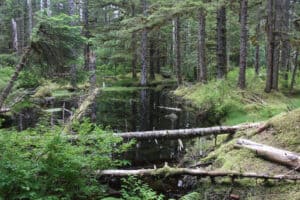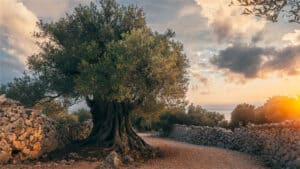Imagine having access to an endless supply of pecans. You can make your own healthy dishes or never run out of pecan pie! While the idea of growing your own food can be appealing, some crops are easier than others.
In this article, we’ll cover seven reasons to think twice before planting a pecan tree (and why you might want to stick to store-bought pecans instead).
Let’s dig in!
1. Pecan Trees Are Messy
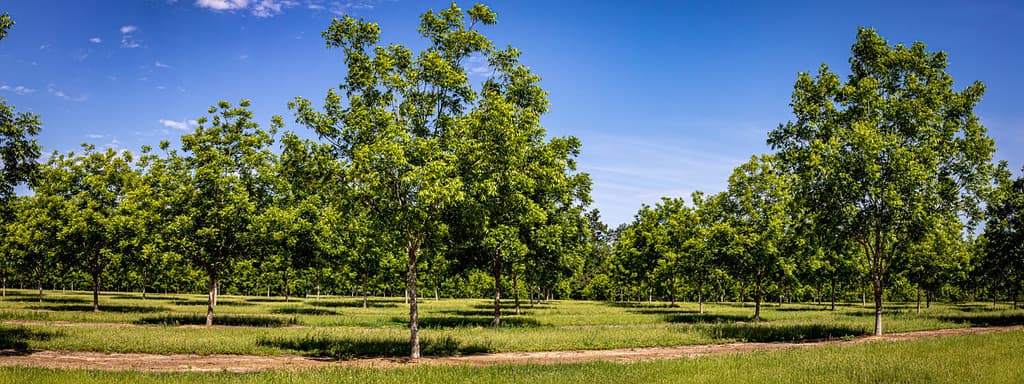
Pecan trees drop leaves, twigs, bark, and honeydew.
©Gestalt Imagery/Shutterstock.com
The main disadvantage of planting a pecan tree is that they’re notoriously messy. They’re considered among some of the messiest trees on earth.
Pecan trees drop a lot of leaves, twigs, and bark — but that’s the least of it. They also drop a sticky substance called honeydew, which has the same residue as the favored fruit but none of the charm.
Honeydew is produced by hungry aphids. This waste material makes a mess when it gets on vehicles or outdoor furniture. It can also promote fungal growth when left unchecked.
If the idea of extra lawn maintenance doesn’t appeal, a pecan tree may not be for you.
2. Pecan Trees Attract Pests and Disease
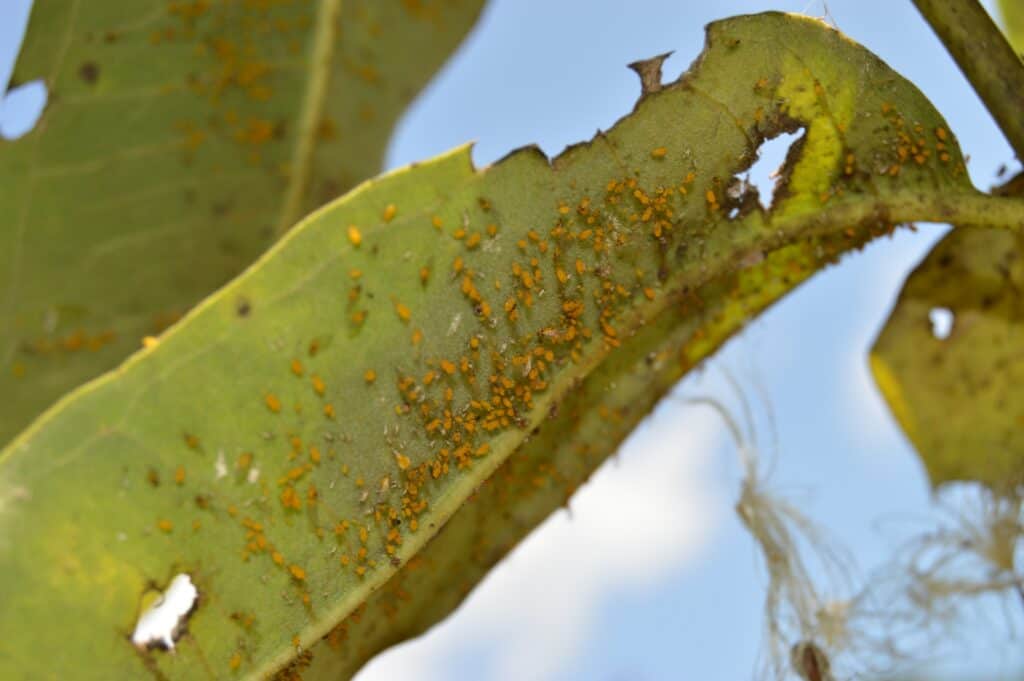
Aphids love pecan trees.
©Pboyce/Shutterstock.com
Pecan trees are prone to several pests and diseases. In addition to aphids, these trees also attract fungi and parasites.
Scab is a common fungal infection found on pecan trees. The fungus invades the nuts and ruins entire crops.
Vein spot is another common fungal infection that targets pecan leaves and interrupts their ability to photosynthesize.
Powdery mildew and nematodes are other common offenders that also attack other trees and plants in the area. Deterring these pests requires constant monitoring and care.
3. Pecan Trees Are Prone to Root Rot
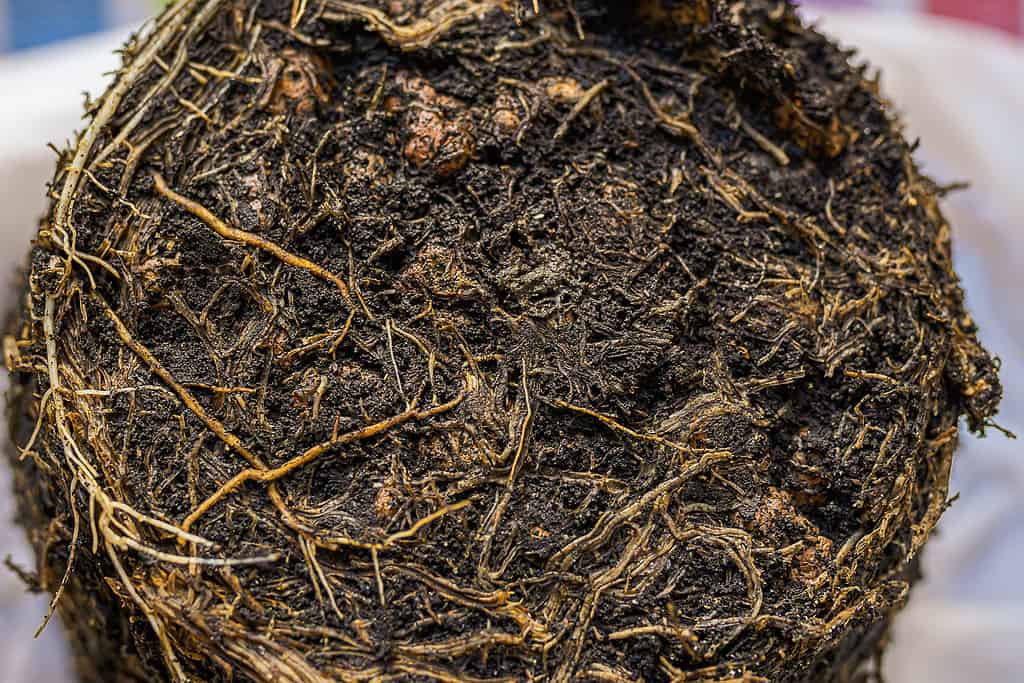
Standing water and poor drainage cause root rot.
©Larisa Stefanuyk/iStock via Getty Images
Pecan trees require a lot of moisture to survive. However, they’re also prone to root rot if the moisture remains around their roots for too long. These conflicting issues create a fine line that pecan tree owners must navigate carefully.
This tree requires well-draining soil, similar to its native Texas. If you have compact or clay-dense soil, this tree may not be right for your property.
4. Pecan Trees Are Cold-Sensitive
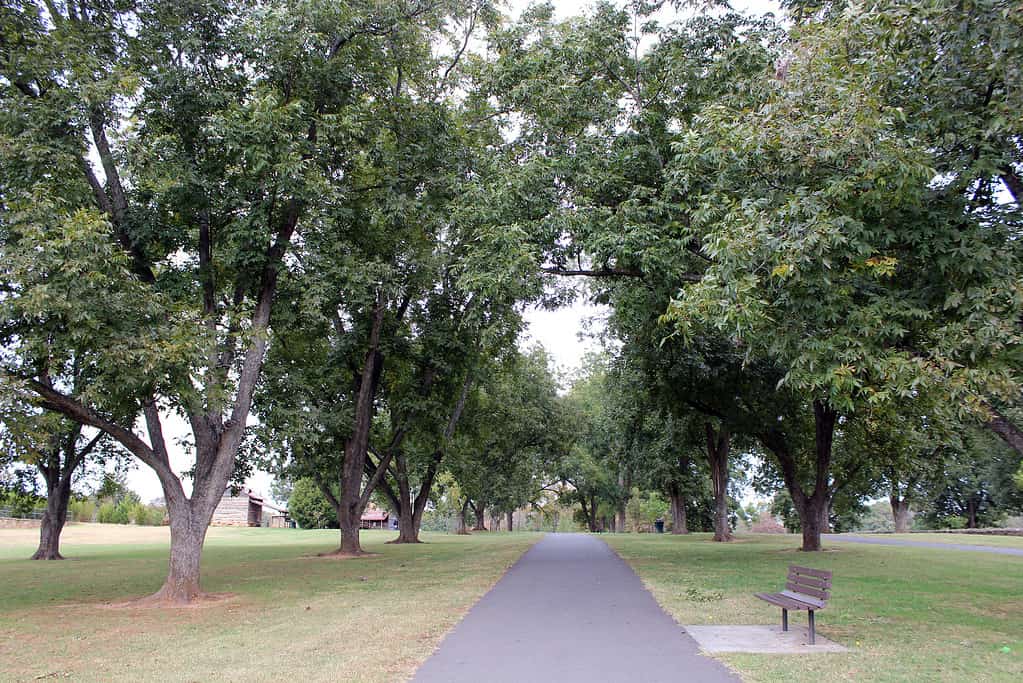
These trees love warm climates and will not survive the cold.
©PamSchodt/iStock via Getty Images
Pecan trees perform best in USDA zones 5-9. However, they can be cold-sensitive in the lower-numbered zones.
Unlike other fruit and nut-bearing trees, pecan trees lack a natural dormancy period over the winter. This means they’ll keep producing sap. If an unseasonable deep freeze hits, it can damage or kill the trees.
If you live in an area that’s prone to snap freezes, avoid planting a pecan tree.
5. Pecan Trees Take 10 or More Years to Produce
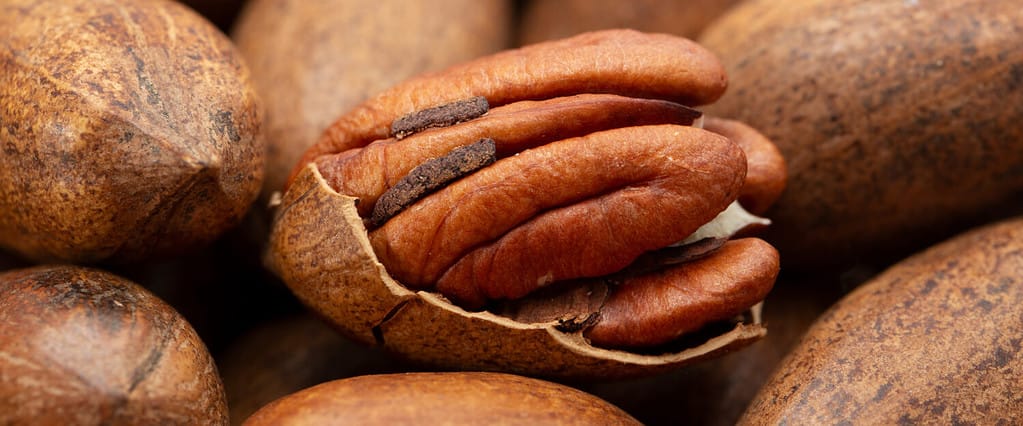
It can take over a decade for pecan trees to produce nuts.
©Piotr Velixar/Shutterstock.com
Pecan trees can take over ten years to start producing nuts. While some varieties start producing in as little as five years, most casual growers can expect ten years or more.
Research pecan trees that will survive in your area and get a better estimate of the production timeline. Keep in mind that farmers have teams and resources dedicated to making their trees produce.
If you’re in a short-term home, it’s likely not worth the time and effort of planting and maintaining a pecan tree. As these trees have significant care needs, they may not produce at all.
6. Pecan Trees Are High-Maintenance
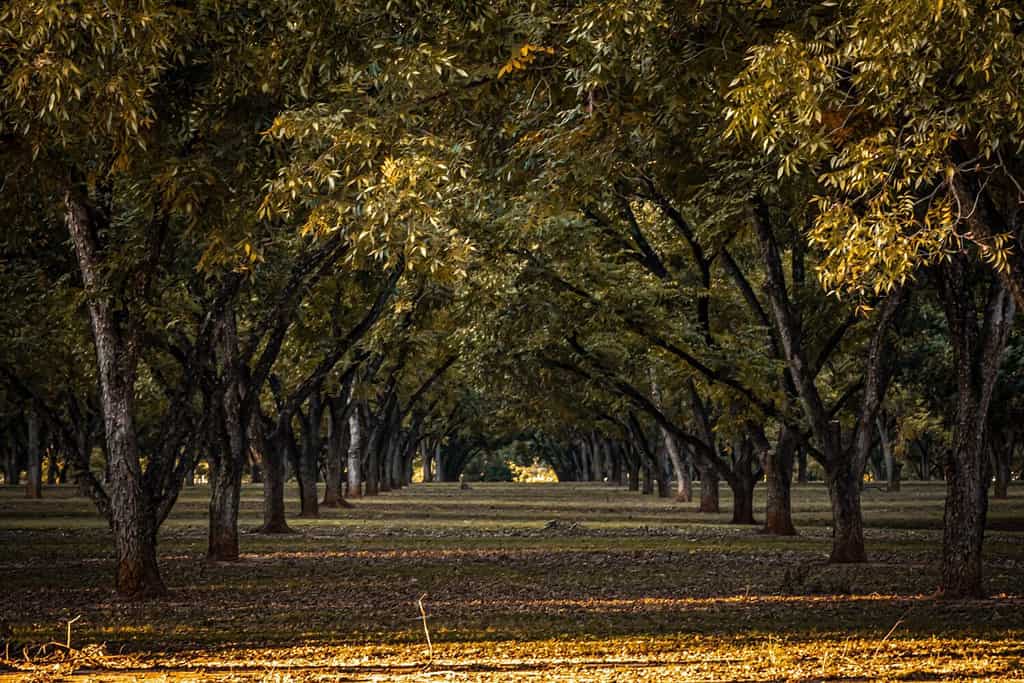
Farmers work hard to maintain pecan trees.
©J. Frederick/Shutterstock.com
While it’s implied throughout this list, it has to be said pecan trees are incredibly high maintenance.
They require well-timed fertilization to provide ample nutrients without shocking the roots.
Pecan trees need regular watering but enough drainage to prevent root rot.
These pest-attracting trees require regular care and maintenance to help them overcome their ailments.
Another issue with planting a pecan tree is that they require pruning as they grow. If the leaf canopy gets too dense, the tree underneath will suffer. It takes a lot of energy to produce a single nut. If you want a healthy crop, you’ll have to prune and train your tree.
Pruning and maintenance can also become a safety issue as your tree grows. Pecan trees can grow over 70 feet tall.
7. Pecan Trees Can Be Water Seeking
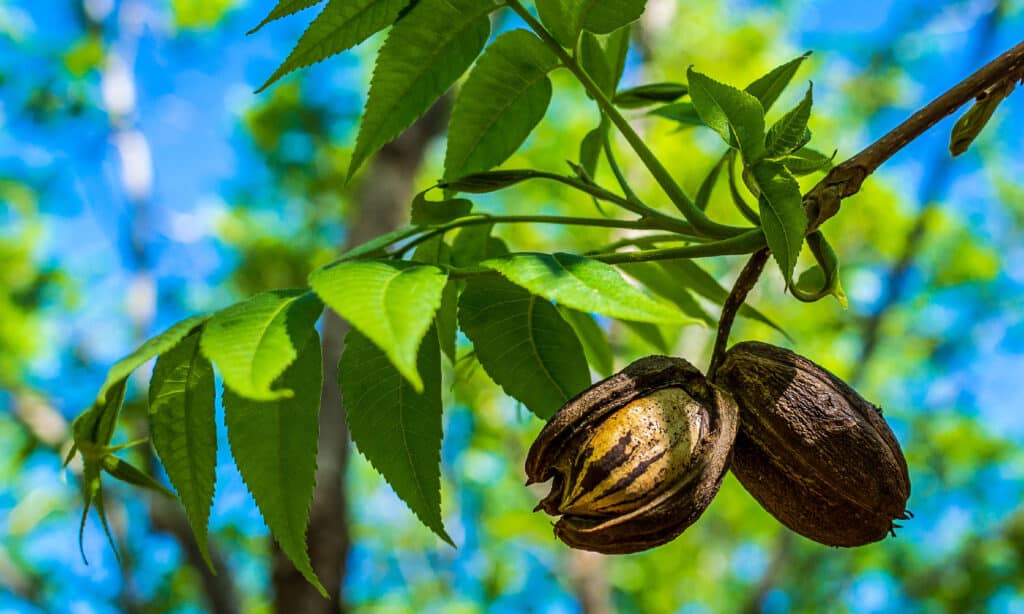
Pecans require a lot of water.
©iStock.com/Skapie777
Finally, pecan trees can be water-seeking. If you aren’t providing enough water or your area is experiencing a drought period, the roots may start digging for your well, foundation, or septic system. Shallow roots are especially needy and susceptible to drought periods.
If you don’t have space to plant your pecan tree far from your house and water systems, this isn’t the tree for you. Alternatively, you must commit to a regular watering schedule.
Downsides of Planting a Pecan Tree: A Summary
| Ranking | Reasons to Avoid Planting a Pecan Tree |
|---|---|
| 1 | Pecan Trees Are Messy |
| 2 | Pecan Trees Attract Pests and Disease |
| 3 | Pecan Trees Are Prone to Root Rot |
| 4 | Pecan Trees Are Cold-Sensitive |
| 5 | Pecan Trees Take 10+ Years to Produce |
| 6 | Pecan Trees Are High-Maintenance |
| 7 | Pecan Trees Can Be Water Seeking |
The photo featured at the top of this post is © Tayloradempsey/Shutterstock.com
Thank you for reading! Have some feedback for us? Contact the AZ Animals editorial team.




